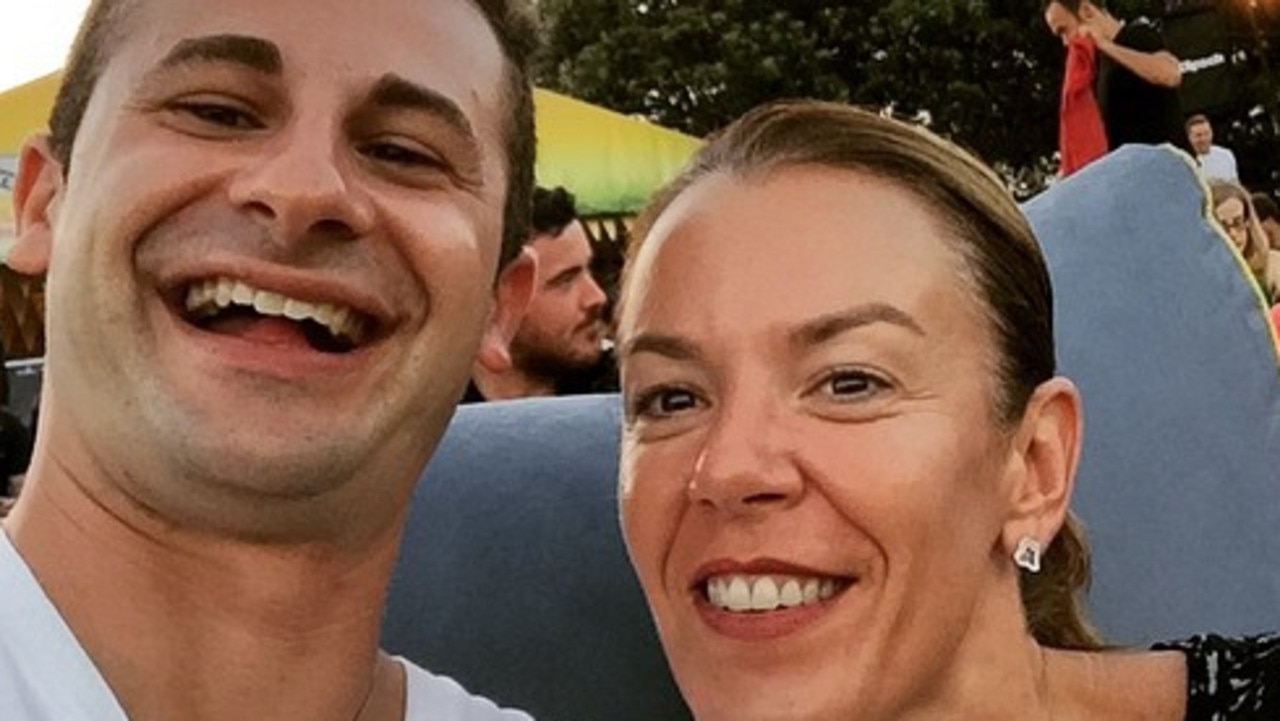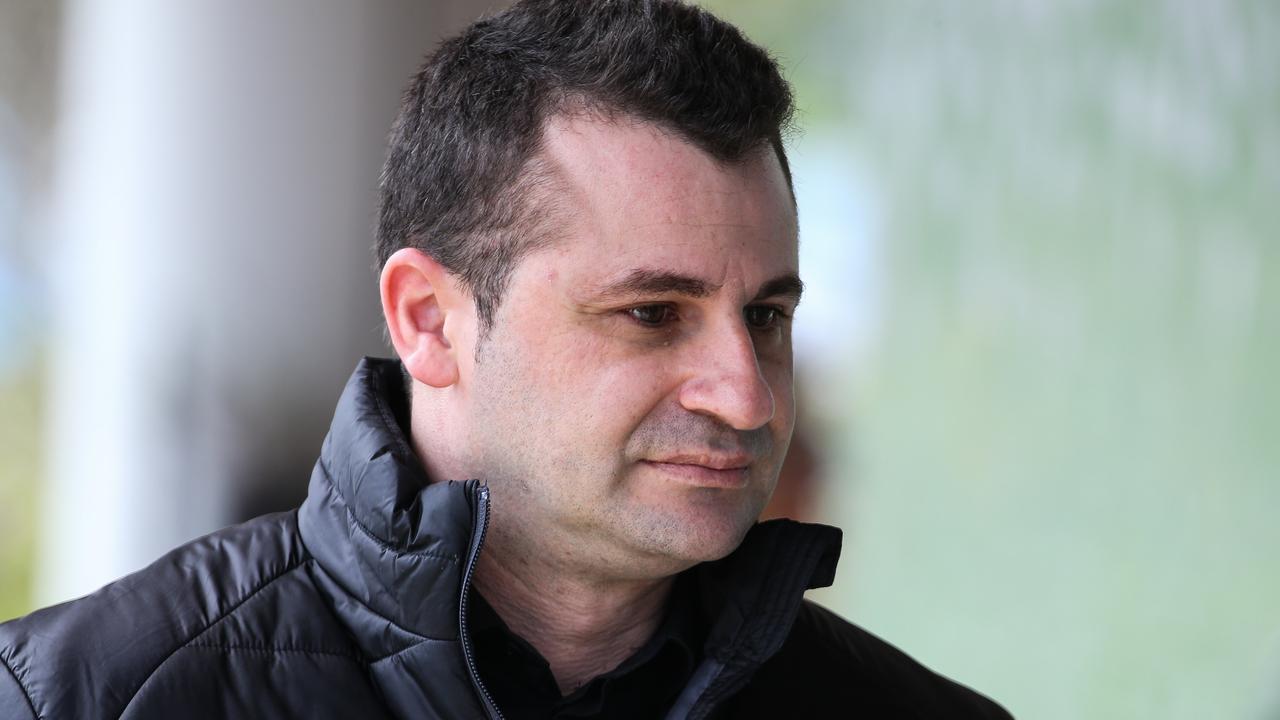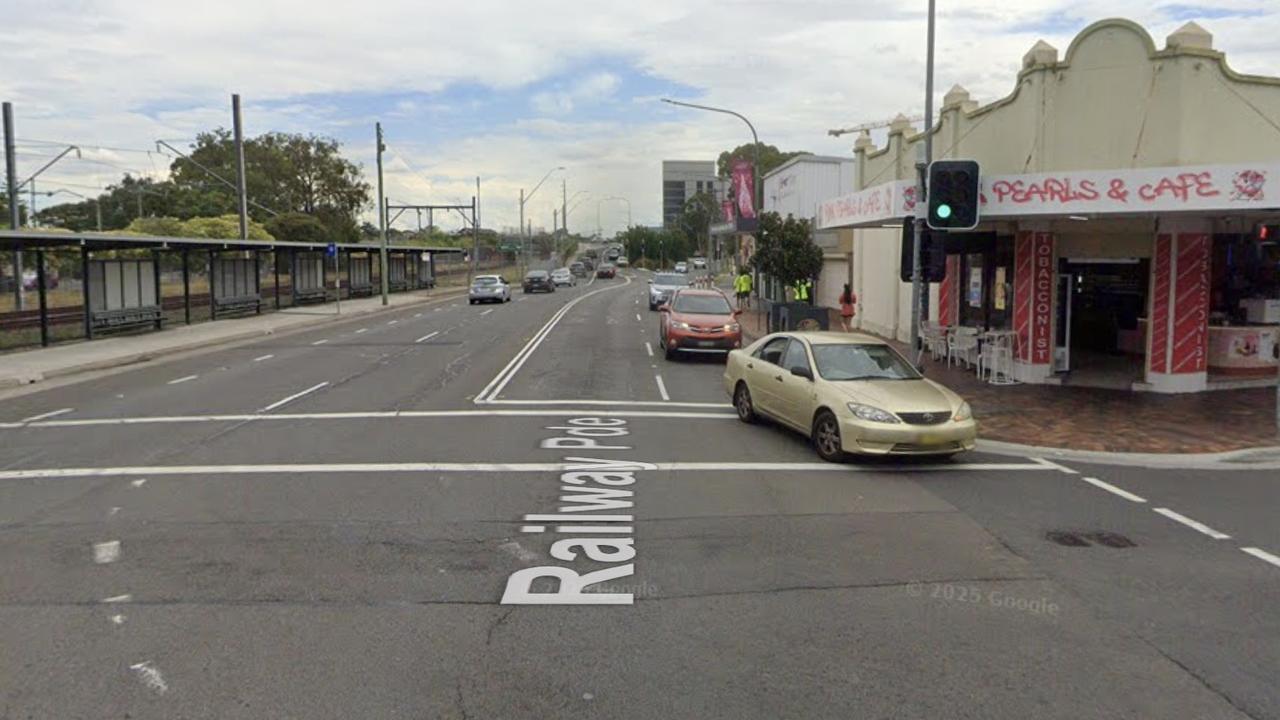Why police abandoned pig experiment to find Melissa Caddick
Police abandoned plans to carry out an experiment involving pigs in a bid to crack the Melissa Caddick case because they were concerned about sharks, a court has heard.

Police abandoned plans to toss pigs wearing running shoes into the ocean in an effort to unravel missing persons cases such as Melissa Caddick’s because they were concerned about sharks swallowing the tracking devices, an inquest has heard.
The circumstances surrounding the missing fraudster’s disappearance and the subsequent police investigation are being examined by a coronial inquest.
The inquest has heard from ocean current experts after a foot, which was later DNA matched to Ms Caddick, washed up on Bournda Beach on the NSW south coast three months after she vanished.
The inquest, which resumed on Monday, heard that during initial inquiries police had focused on three theories – that Ms Caddick self-harmed by jumping off the Dover Heights cliffs, that she went on the run after being raided by the corporate regulator and that she had been harmed or murdered.
Ms Caddick, 49, was last seen in the early hours of November 12, 2020 walking out the front door of her Dover Heights mansion in Sydney’s eastern suburbs.
Hours before she vanished, the Australian Federal Police and ASIC raided her $6.2 million property as part of an investigation into a multimillion fraud.

Detective Chief Inspector Glen Browne, the then-manager of the NSW Missing Persons Registry, liaised with members of the NSW Police Eastern Suburbs Command, who were in charge of the investigation.
The NSW Coroner’s Court previously heard that police at one stage considered conducting an experiment involving pig carcasses being thrown into the ocean, fitted with running shoes and tracking devices.
The court has heard it was supposed to test ocean currents and how sharks would react to a body in the ocean and that the experiment was discussed at meetings between high-ranking police officers.
Chief Inspector Glen Browne said NSW Police dealt with about 10,000 missing persons cases each year and wanted to carry out experiments on what would happen if a body went into the water off the cliffs of Sydney’s eastern suburbs.
The court has heard that police did not go through with the experiment, with Chief Inspector Brown saying on Monday they were concerned about the possible effects of the tracking devices on sharks.
“There were concerns expressed about what the devices attached to the carcasses might do to protected species, that being the Great White Shark,” Chief Inspector Browne said.

Detective Sergeant Michael Kyneur was the officer in charge of the investigation for a brief 10-day period after Ms Caddick went missing.
Chief Inspector Browne told the inquest on Monday morning he had impressed upon Sergeant Kyneur the importance of keeping an open mind, because he seemed to be favouring the theory that Caddick had gone on the run.
“My only concern in those early conversations is he seemed to be favouring one line of inquiry,” Chief Inspector Browne told the inquest.
In his evidence, Sergeant Kyneur denied he had focused in on one theory to the detriment of others.
The corporate watchdog has accused Ms Caddick of misappropriating $23m worth of investor funds, including from her friends and family, to fund a lavish lifestyle including holidays, designer jewellery, watches and clothing.
She has been accused of posing as a financial adviser, using her company Maliver, and pretending to invest millions of dollars for clients using fake CommSec portfolios.
During a block of hearings earlier this year, the inquest heard that Melissa Caddick’s husband Anthony Koletti waited 30 hours to report his wife missing.
Mr Koletti defended that decision, saying at the time he believed that he had to wait 24 hours before making a missing person’s report.
Police have previously told the inquest that they were worried about inconsistencies in Mr Koletti’s initial statements to them, as well as his demeanour, and at the time believed he may have been withholding information.
Senior police have said Mr Koletti was not a suspect in Ms Caddick’s disappearance.

Chief Inspector Browne defended the decision not to involve the NSW Police Homicide Squad in early investigations.
According to the NSW Police Standard Operating Procedure (SOP) at the time, the Homicide Squad should be called into a missing persons investigation if it’s suspected the person had been murdered or if “suspicious circumstances” exist.
The inquest heard on Monday that the SOP had since been changed, as a direct result of the Caddick case, with Chief Inspector Browne explaining the previous wording was ambiguous.
Chief Inspector Browne told the court the intention was for homicide officers to be brought in only in cases where a murder was suspected.
He told the court he was comfortable with the homicide squad not being called in at that stage, saying he was “heartened” that a senior officer such as Sergeant Kyneur was running the investigation.
Chief Inspector Browne was also asked by counsel assisting the coroner Jason Downing if police should have sought the ASIC affidavit, which was presented to a court in order to obtain the search warrant, or information about her fraud and business.
“Probably, but it’s difficult to pass judgment when I wasn’t there,” Chief Inspector Browne said.

The inquest heard on Monday that during a meeting three months after Ms Caddick went missing, Chief Inspector Browne was told that only 20 per cent of CCTV gathered by officers had been reviewed.
Chief Inspector Browne said he was “potentially” concerned by that, but pressed that some pieces of video footage can be more pressing than others.
“It is not unusual to gather CCTV from airports, buses and trains, so you prioritise the material that you gathered,” Chief Inspector Browne said.
The court also heard on Monday that Ms Caddick’s brother Adam Grimley and mother Barbara Grimley would not be giving evidence to the inquest.
Mr Koletti’s solicitor Judy Swan previously said Ms Caddick’s family were concerned their voice was not “being heard” and asked for Mr and Ms Grimley to be added to the witness list.
However the court heard on Monday that the inquest was scheduled to conclude with evidence from police officers on Tuesday.
The inquest continues on Tuesday.




